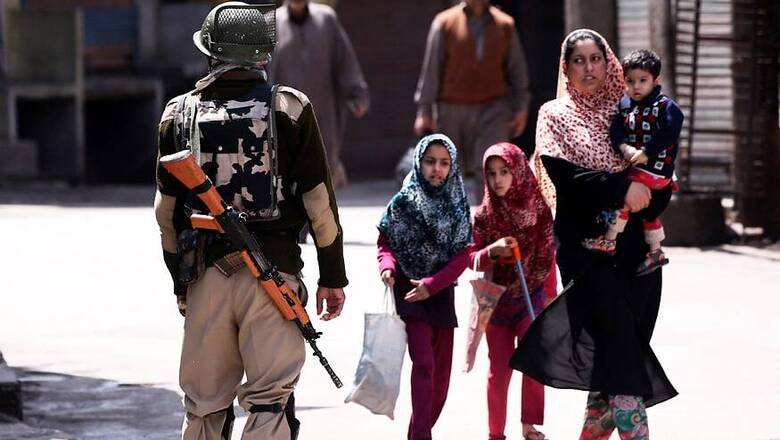
views
New Delhi: The government’s decision to repeal Article 370 that gave special status to Jammu and Kashmir and bifurcate the state into two Union territories would have huge implications on how Indian laws are applied to the region as well as on the day-to-day lives of citizens.
To begin with, J&K will no longer have it separate flag once Article 370 is revoked. After Kashmir’s special status is gone, people from anywhere in India would be able to buy property and permanently settle in the state.
J&K was the only state in the country with its separate Constitution as per provisions mentioned in Article 370, a ‘temporary provision’ that granted special autonomous status to it. Henceforth, provisions of the Indian Constitution will be applicable to the state.
Earlier, the Centre had to get the state legislature’s approval for introducing any policy in the state. J&K enjoyed rights to take decisions on all matters, barring defence, communications and foreign affairs. Those special powers would now go.
Article 360 that allows the Centre to declare financial emergency in any state will now apply to Jammu and Kashmir. Earlier, the move would require “war or an external act of aggression".
There can be reservation for minorities in the state now as well, depending on the decisions taken by the newly formed state legislature. With the latest move, the Right to Information Act would also become applicable to the state.
Earlier, the duration of the state’s Assembly was six years. Now, it is going to be like any other state — five years.
Earlier in the day, Home Minister Amit Shah announced in the Rajya Sabha that the state would be divided to two Union territories – Jammu and Kashmir with a legislature, and Ladakh without one.
“Keeping in view the prevailing internal security situation, fuelled by cross-border terrorism in the existing state of Jammu & Kashmir, a separate Union territory is being created," Shah said in a notification he introduced in the Upper House.
“The Ladakh division has a large area but is sparsely populated with a very difficult terrain. There has been a long-pending demand of people of Ladakh to give it a Union territory status to enable them to realise their aspiration," it further said.
Following Shah’s proposal, President Ram Nath Kovind promulgated Constitution (Application to Jammu and Kashmir) Order, 2019, stating that provisions of the Indian Constitution will henceforth be applicable to J&K.
The Constitution (Application to Jammu and Kashmir) Order, 2019 came into force “at once", and shall “supersede the Constitution (Application to Jammu and Kashmir) Order, 1954".
The presidential promulgation said, “All the provisions of the Constitution shall apply in relation to the state of Jammu and Kashmir."
For the purpose, a clause 4 has been added to Article 367 which will introduce four changes.
“The references to the person for the time being recognised by the President on the recommendation of the Legislative Assembly of the State as the Sadar-i-Riyasat of Jammu and Kashmir, acting on the advice of the Council of Ministers of the state for the time being in office, shall be construed as references to the Governor of Jammu and Kashmir", said the order.
It added, “References to the Governor of Jammu and Kashmir shall be construed as including references to the Governor of Jammu and Kashmir acting on the advice of his Council of Ministers".
The order further said that in the proviso to clause (3) of Article 370, the expression “Constituent Assembly of the State referred to in clause (2)" shall read as “Legislative Assembly of the State".




















Comments
0 comment